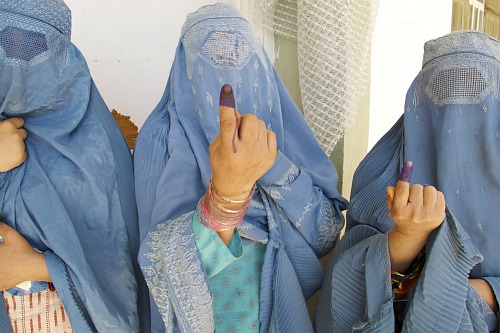프랑스 부르카 금지법
<#309 Spotlight>
France Needs to Be More Cautious about Banning Burqa
By Kim Eun-ji, Tribune Reporter
On the 11th of April, France legally prohibited women from wearing Islamic full-face veils, known as a burqa and niqab, in public places, which has become a political hot potato across Europe. Other European countries have supported a ban on the burqa, but France, which has the biggest Muslim population in Europe, is the first to put the idea into practice. According to the terms of the bill as it was passed by the French parliament, Muslim women would be fined up to 150 euros and be required to attend a citizenship course if they wear the burqa in public places or on the streets, with the exception of some traditional festivals and public events. Also, anyone who forces their wives and daughters to cover their faces will be confronted even a heavier fine, up to 30,000 euros, and a jail term of one year.So why did the French government decide to impose these restrictions?
French President Nicolas Sarkozy has stated that the burqa was “not welcome” in France, saying the face-covering veils are not a sign of religion but a sign of subservience that suppresses women's identities. Also, the French government said that banning the burqa ensures the dignity of women and equality between sexes. But there was a two-fold message in those words: wearing the burqa infringes on women’s rights, but at the same the long-held principle of ethnic assimilation is that newcomers should shed their traditions and adapt to French culture. It other words, it seemed not only to disregard the cultural identity of immigrants and but also to show hostility toward Islamic culture, which significantly adheres to the values of Sharia. Discussion continues on the anti-Islamic sentiment in banning the burqa. Muslim people argue that the legislation oppresses the freedom of Muslim women because wearing burqa or niqab is a woman's choice. The French government insists that banning the face-covering veils is a way to curb repression by religion and guarantee the personal freedom However, there are doubts as to whether it is really liberal or it is a slice of cultural imperialism of France. The French government should respect Muslims' rights and cultural identity and need to be more cautious about legislation banning the burqa.
Similar to France’s situation, although the number of foreign workers in Korea has rapidly increased, the rules guaranteeing their basic rights are insufficient. Foreign workers have been subjected to prejudice and hostility. Also, many foreign workers have faced heightened discrimination and still suffer in places where there are no human rights. In the future, laws like France’s may be enacted in Korea. In this age of globalization, we need to embrace cultural relativism to allow various cultures and traditions to coexist. Therefore, we need discipline in order to have relative perspective. That is to say, we should open our minds up to different cultures and social perspectives of immigrants and break down common stereotypes and misconceptions about foreigners. CNUians should also make efforts to respect the various cultures and understand multiculturalism.

김은지 기자
eunjiddd@naver.com

